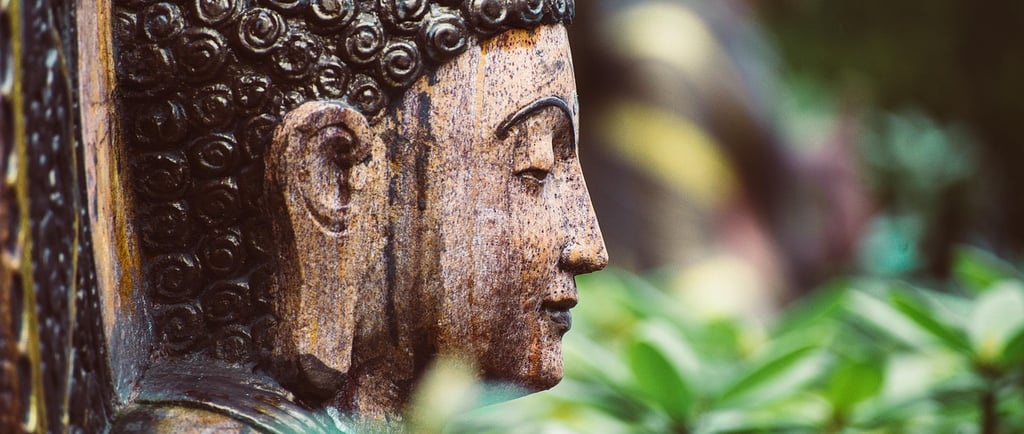What Buddha Says About Silence
Wisdom in Stillness
Team H & H
7/4/20252 min read


In our noisy, fast-paced world, silence often feels like a luxury — or even an awkward pause we rush to fill. But in the teachings of Gautama Buddha, silence is not emptiness; it is a doorway to inner peace, truth, and awakening. Throughout his life, the Buddha emphasized the profound power of silence — not just as an absence of speech, but as a presence of awareness.
Let’s explore what Buddha says about silence, through his own timeless words.
1. "Silence is an empty space. Space is the home of the awakened mind."
This quote captures the essence of mindfulness. Silence isn't a void — it’s a space where clarity arises. In that space, we stop reacting and start *observing*. The awakened mind finds rest not in words, but in awareness. Just as sound cannot exist without silence, wisdom is born in the stillness between thoughts.
2. "Better than a thousand hollow words is one word that brings peace."
This is perhaps one of the most quoted Buddhist sayings, and for good reason. In a world full of noise, Buddha reminds us to speak only when our words hold meaning. Sometimes, silence can carry more weight than speech. A peaceful presence speaks louder than a thousand explanations.
3. "A fool is known by his speech and a wise man by his silence."
In Buddhist practice, restraint is a virtue. When we speak without thought, we often reveal more ignorance than insight. Silence, on the other hand, becomes a mirror of wisdom — not because we don’t know what to say, but because we have learned the value of not saying it.
4. “When words are both true and kind, they can change the world.”
Though this quote promotes the power of words, it indirectly celebrates silence too — because for words to be both *true* and *kind*, they must arise from deep reflection. That reflection happens in silence. Buddha encourages us to *pause* before we speak, so our speech flows from compassion, not compulsion.
5. “Meditate… do not delay, lest you later regret it.”
Meditation is the ultimate silence. In Buddhist tradition, meditation isn't about stopping the mind — it's about listening to it, without judgment or reaction. When we sit in silence, we witness the dance of thoughts, the waves of emotion, and eventually, we discover the still ocean beneath.
Silence as Compassion and Understanding
Buddha also taught that silence can be a form of deep listening — an act of compassion. In many moments, we don’t need advice or correction. We need presence. A silent, mindful presence can hold space for another in a way no words ever can.
The Practice of Noble Silence
Buddha often observed what is known as “Noble Silence”— especially when questions were asked that didn’t lead to liberation. He would remain quiet rather than engage in futile philosophical debates. This wasn’t avoidance — it was wisdom. Not all questions need answers; some need stillness.
Buddha’s silence was not empty. It was full of knowing, presence, and peace. In our own lives, we can honor this by choosing our words mindfully, embracing moments of stillness, and practicing the art of deep listening.
In the quiet, we don’t lose connection — we find it.
In the silence, we don’t escape life — we meet it more deeply.
"Peace comes from within. Do not seek it without." — Buddha
And where does peace begin?
In silence.
Take care,
Team H&H






